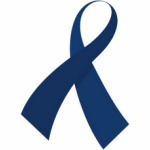Oncology
|
21 january 2015 11:20:07 |
| The anti-angiogenic and cytotoxic effects of the boswellic acid analog BA145 are potentiated by autophagy inhibitors (Molecular Cancer) |
|
Tweet Background:
While angiogenesis inhibitors represent a viable cancer therapy, there is preclinical and clinical data to suggest that many tumors develop resistance to such treatments. Moreover, previous studies have revealed a complex association between autophagy and angiogenesis, and their collective influence on tumorigenesis. Autophagy has been implicated in cytoprotection and tumor promotion, and as such may represent an alternative way of targeting apoptosis-resistant cancer cells. This study explored the anti-cancer agent and boswellic acid analog BA145 as an inducer of autophagy and angiogenesis-mediated cytoprotection of tumor cells.
Methods:
Flow cytometry, western blotting, and confocal microscopy were used to investigate the role of BA145 mediated autophagy. ELISA, microvessel sprouting, capillary structure formation, aortic ring and wound healing assays were performed to determine the relationship between BA145 triggered autophagy and angiogenesis. Flow cytometery, western blotting, and microscopy were employed to examine the mechanism of BA145 induced cell death and apoptosis. Live imaging and tumor volume analysis were carried out to evaluate the effect of BA145 triggered autophagy on mouse tumor xenografts.
Results:
BA145 induced autophagy in PC-3 cancer cells and HUVECs significantly impeded its negative regulation on cell proliferation, migration, invasion and tube formation. These effects of BA145 induced autophagy were observed under both normoxic and hypoxic conditions. However, inhibition of autophagy using either pharmacological inhibitors or RNA interference enhanced the BA145 mediated death of these cells. Similar observations were noticed with sunitinib, the anti-angiogenic properties of which were significantly enhanced during combination treatments with autophagy inhibitors. In mouse tumor xenografts, co-treatment with chloroquinone and BA145 led to a considerable reduction in tumor burden and angiogenesis compared to BA145 alone.
Conclusion:
These studies reveal the essential role of BA145 triggered autophagy in the regulation of angiogenesis and cytoprotection. It also suggests that the combination of the autophagy inhibitors with chemotherapy or anti-angiogenic agents may be an effective therapeutic approach against cancer. |
| 86 viewsCategory: Oncology |
 Randomized multicenter follow-up trial on the effect of radiotherapy for plantar fasciitis (painful heels spur) depending on dose and fractionation ¿ a study protocol (Radiation Oncology) Randomized multicenter follow-up trial on the effect of radiotherapy for plantar fasciitis (painful heels spur) depending on dose and fractionation ¿ a study protocol (Radiation Oncology)Molecular mechanism and clinical impact of APOBEC3B-catalyzed mutagenesis in breast cancer (Breast Cancer Research) 
|
| blog comments powered by Disqus |
MyJournals.org
The latest issues of all your favorite science journals on one page
The latest issues of all your favorite science journals on one page



